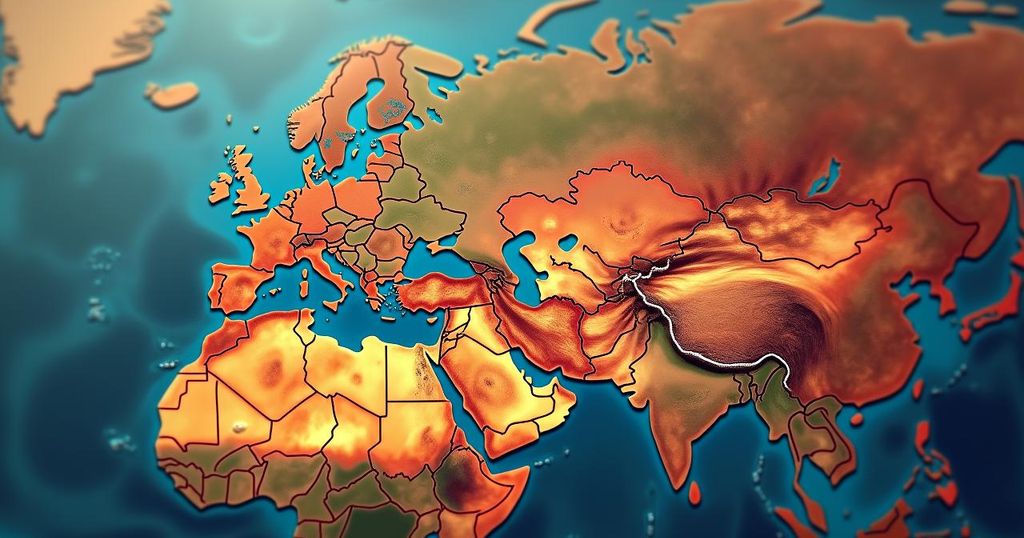Will Escalating Violence in the Middle East Impact the US Elections?
Escalating violence in the Middle East may adversely impact the US elections, particularly the campaign of Vice President Kamala Harris. Arab voters exhibit frustration towards Harris due to the Biden administration’s unwavering support for Israel amid its military actions. With key voting states like Michigan showing vulnerability, analysts warn that decreased turnout from Arab Americans could jeopardize Harris’s prospects against Donald Trump.
As we approach the United States presidential election, the escalating violence in the Middle East, particularly the conflict involving Israel and Gaza, presents significant implications for the Democratic campaign led by Vice President Kamala Harris. Frustration among Arab voters is palpable due to the Biden administration’s steadfast support for Israel amid its military actions in Gaza, which have reportedly resulted in tens of thousands of casualties. Such developments may lead to diminished voter turnout among key constituencies, particularly in swing states like Michigan, where a notable segment of Arab Americans resides. Despite foreign policy rarely topping voter priorities, the current geopolitical climate is forcing these issues to the forefront. The Democratic base, historically supportive of the party, is showing signs of division, as evidenced by a recent polling shift that sees Harris and former President Donald Trump nearly equal in support among Arab voters. The Biden administration’s unwavering commitment to aid Israel, which has included significant military assistance, appears to be alienating a crucial demographic within the party. Analysts predict that should a considerable proportion of Arab Americans abstain from voting, it could have deleterious consequences for Harris’s prospects in swing states. Although some Arab voters might consider a vote for third-party candidates or abstaining altogether, others are wary of a Trump presidency, thus complicating the decisions for many within this community. In summary, as the violence escalates and perceptions of the Biden administration shift, the dynamics of the upcoming election are increasingly intertwined with international issues, leading to unpredictable outcomes for both candidates.
The ongoing conflict in the Middle East has become increasingly relevant in the context of the upcoming US presidential election. The Biden administration’s consistent support for Israel during the war in Gaza has drawn criticism from various quarters, particularly among Arab voters. This demographic, which has historically leaned towards the Democratic Party, is experiencing a decline in allegiance due to perceived neglect of their concerns. Analysts warn that this discontent could significantly impact Vice President Kamala Harris’s campaign as she faces a tight race against former President Donald Trump. The situation underscores the potential influence of foreign policy on domestic elections, despite it usually being a secondary concern for American voters.
The intersection of foreign policy and domestic electoral dynamics is becoming increasingly pronounced with the ongoing violence in the Middle East. Vice President Kamala Harris and the Biden administration are confronted with the consequences of their stance on the Israel-Gaza conflict, which could lead to electoral fallout among key voting blocs, particularly Arab Americans. With the election looming and polling indicating a precarious situation for Harris, the administration must navigate these complex political waters to retain support and secure a victory in the forthcoming election.
Original Source: www.aljazeera.com




Post Comment